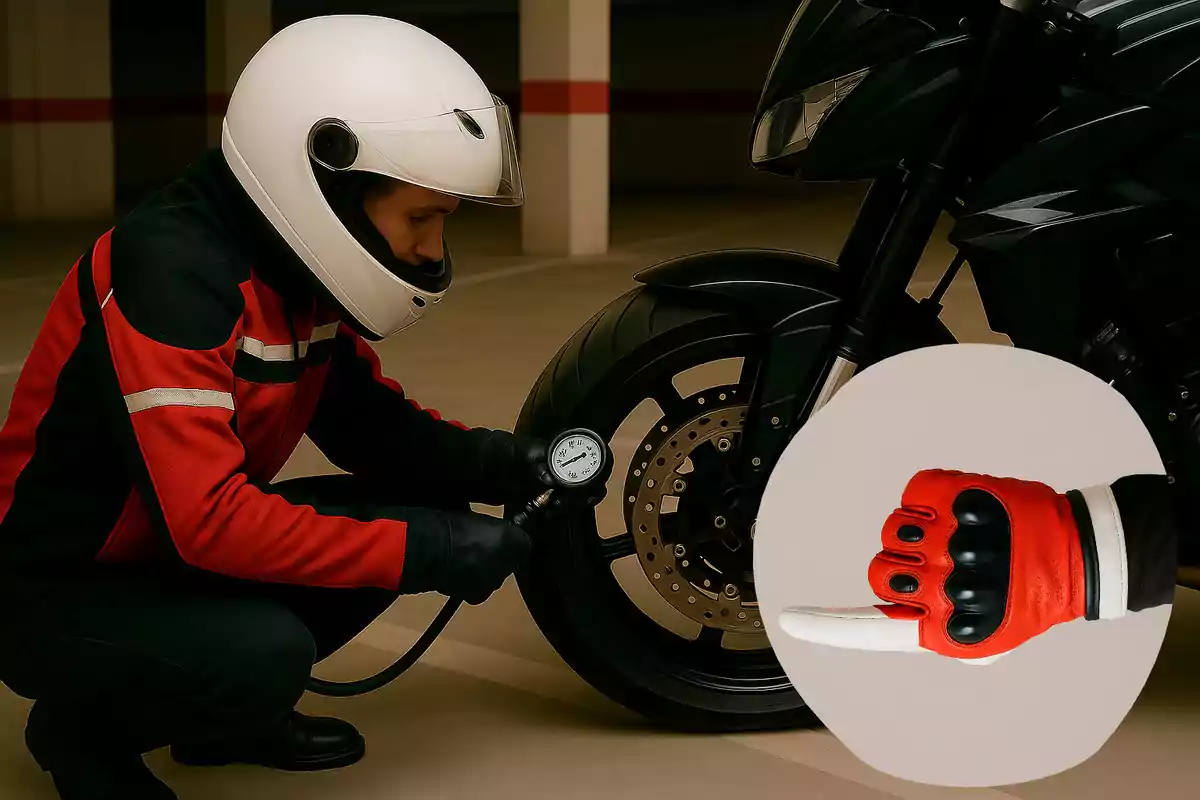
3 steps to accurately measure your motorcycle's tire pressure
When you check your tire pressure, you ensure that your motorcycle performs correctly and safely
One of the motorcyclist's duties is to check the condition of the tires on their bike, both on the tread and "inside."
It's the latter that we're addressing here, as it's essential for the bike not to have strange and unpredictable reactions.
Moreover, if you ride it without monitoring the pressure of both tires, the degenerative consequences will show up sooner or later.
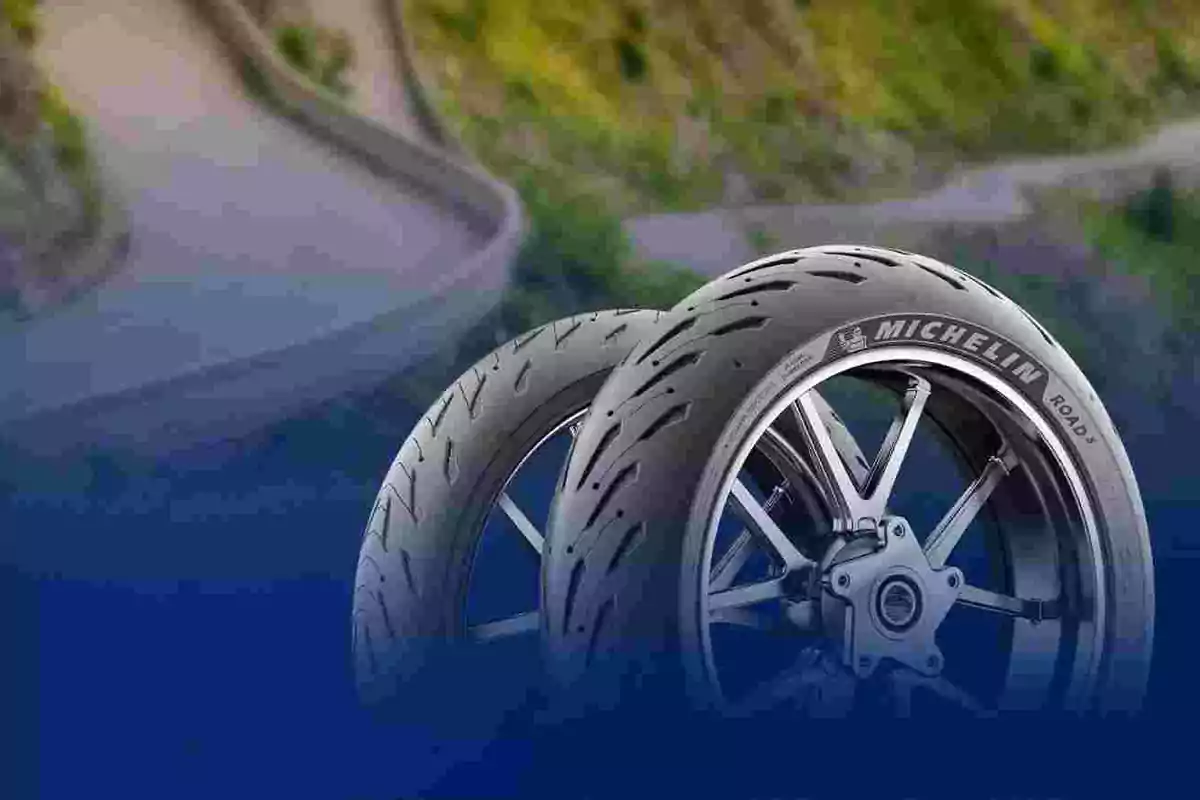
Your tires and your safety
Imagine for a moment that your bike's engine starts leaking oil, and the residue ends up on the rear wheel: the result would be a disaster.
Keep in mind that a high percentage of your safety depends on the good condition of your bike's key parts.
Of course, one of them is the contact patch when you ride together. Think about it when you're about to set off and follow these three essential steps.
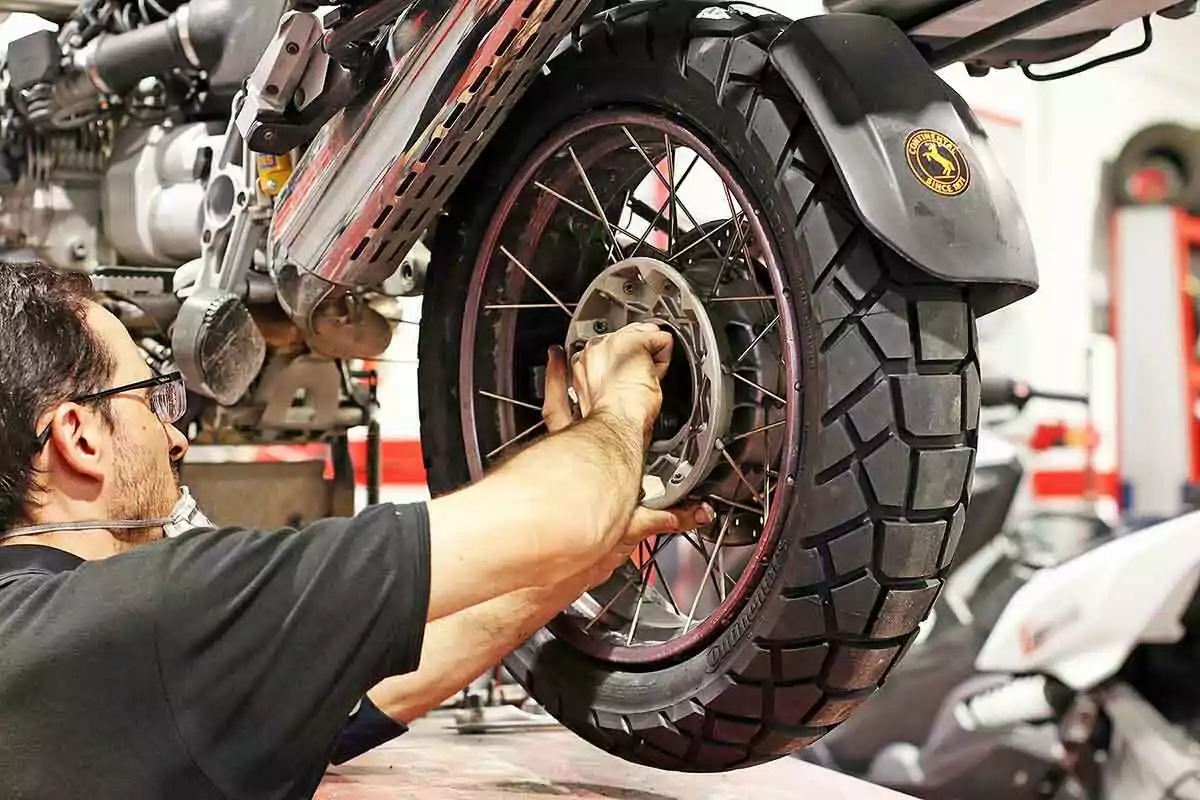
1. Don't leave it for later
There are two premises here: on one hand, you must check the tire pressure regularly, without letting entire weeks go by between checks.
On the other hand, that "I'll check it when I get to the gas station" doesn't help much: anything could happen before you get there.
Conclusion: do it before you start riding, whether you're heading to work, which isn't far, or going out for a ride.
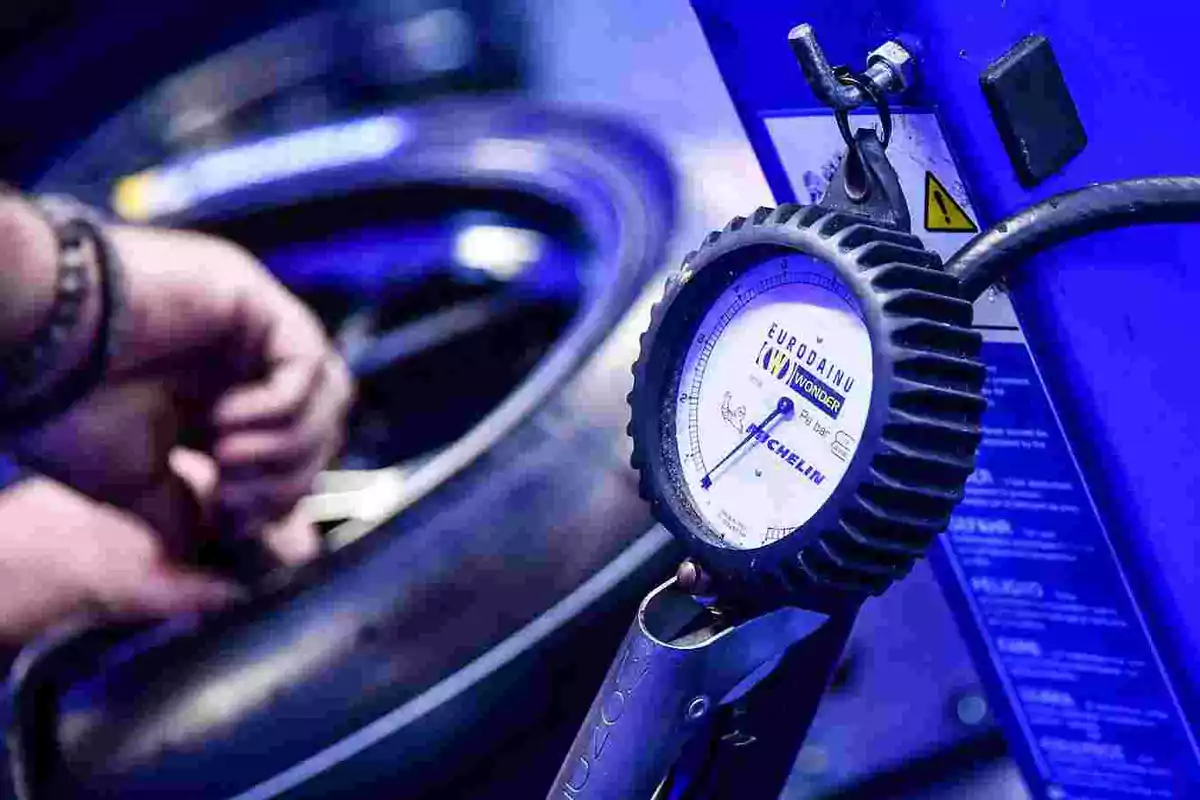
2. Use the same pressure gauge
Don't take chances with this either, because accuracy is important and those "cheap" pressure gauges are only good for what they're good for...
Of course, you shouldn't trust them. So you need to make a small investment to get your own and check it, remember, always before starting up.
Ideally, to top it off, compare it with another one you know is very accurate, for example, one at a specialist workshop.
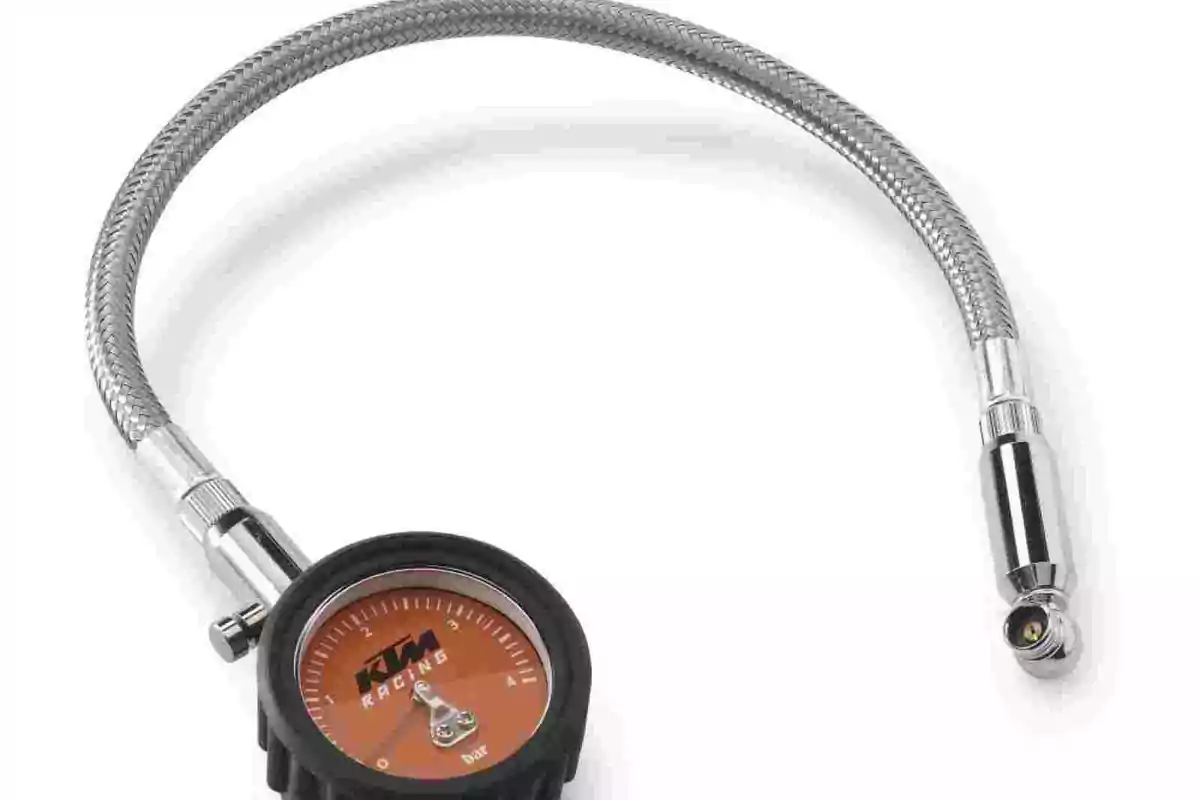
3. The perfect pair
Now there are pressure gauges with portable inflators that add or remove air from your tires based on what they detect.
In addition to the comparison operation mentioned with this device, it's not a bad idea to have a good pressure gauge and a small air pump... the old-fashioned way.
Remember to always do it the same way, that is, when cold and with the values specified by your bike's manufacturer: don't play around with "raising or lowering" because it's not always a good thing.
More posts: